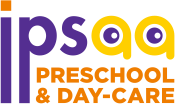Children form the foundation on which they learn how to express and discover themselves. Crucial when it comes to a child’s emotional, physical, and cognitive development, the years 0 to 6 is when children go through different levels of development. Playschools and daycares play a vital role in boosting their confidence and developing their skills
The Important phases of children’s development are,
- Language development
- Physical development
- Cognitive development
- Personal Social and Emotional development
Language development in children is the process through which we gain the ability to comprehend and communicate through speech. Before acquiring fluency, a child may progressively learn fundamental verbal patterns and increase their vocabulary throughout this stage. It is also a process of developing the capacity to speak, which starts with the children hearing and understanding the pitch of the voice and culminates with children using words effectively to transmit thoughts and desires.
Language development is a crucial element of childhood and early years of education in play schools. It supports the capacity of children to learn aspects of spoken communication. It also enhances your child’s ability to:
- Convey and comprehend sentiments
- Think and learn
- Address problems
- Create and sustain relationships
How to Include Language Learning in Playschools and Daycare
- Create a space for language activities to occur naturally a welcoming environment where children can explore, play together, and play on their own.
- Provide open-ended materials, like arts and crafts, playdough, pretend play, and block play area props. The larger the variety of materials offered increases the exploration opportunities. Just look around the house, and you will be amazed at what kids can use to play. Through play, your child can ask questions, increase vocabulary, and you can model language, boosting their language skills.
- Build on what interests your child. As an illustration, if your child is curious about penguins, read books about penguins. Talk and sing songs about them. Enjoy other activities like a field trip to the aquarium or zoo. Use these opportunities to develop language skills and increase their vocabulary all through play and exploration.
4 easy language development activities for children
1. Storytelling
Storytelling is a great family activity that encourages language development and introduces new vocabulary. Makeup stories together with your child including characters, conflict, and a happy ending. Ask your child to retell stories and set aside time for regular reading. Start early book experiences with board books and use sensory books to encourage your children to touch and feel items in the pictures. You can even narrate the day with your child as it unfolds like, Narrating about what you are doing and how you are doing it will help them in learning to use the words in sentences.
2. Rhymes
The repetitive chanting, reading, writing, or hearing of rhymes promotes good listening skills and memory retention, aside from developing speech. You can also narrate what you do at home with rhyming words or let your children tell you about their favorite toys using rhyming words.
3. Picture book spotters
Read picture books with your child and pause to look at and discuss the pictures. Repeat what you have read in the story by pointing out what is happening in the pictures. Encourage your child to make comments by asking them what else they can spot, eventually, this can be done when they identify the real objects and talk about them. This activity can build confidence in your children and motivate them to speak more often
4. Encourage the children to express themselves
Children can start by asking for their needs like food, toys, etc. Often as parents, you can understand your child’s needs and give them to them without asking. However, what is also important is to create opportunities for the child to ask what they need. You can also extend the conversations by asking them questions. A few examples would be: Do you want blocks? What will you do with the blocks? Do you want a ball? Do you want a big ball or a small ball? Adding and expanding your words will help the child develop vocabulary. While some babies and toddlers may still be in the process of forming words, this is the common activity that is carried out in play schools and daycares to develop language in children
The benefits of healthy language development
Language is the foundation for all social interactions, having problems communicating can cause frustration both for you as a parent, more importantly for your children.
Language development is strongly interdependent with, and supports, your child’s brain and cognitive development. Studies have shown that having a large vocabulary increases creativity and helps people to come up with new ideas. There are also numerous benefits to learning more than one language!
In other words, the development of language cannot be viewed in isolation but is strongly connected to, and hugely important for, your children’s overall development during the first years of life.
Promoting a learning-friendly environment where you read age-appropriate books, and find ways to play and have fun while teaching, will help accelerate your children’s language acquisition which can be acquired by admitting them to Playschools and Daycares. The Curriculum in playschools is designed to improve your children’s education and peer learning can also play a vital part in it. It will also boost overall progress on other developmental milestones and help provide many more growth opportunities later in life.

